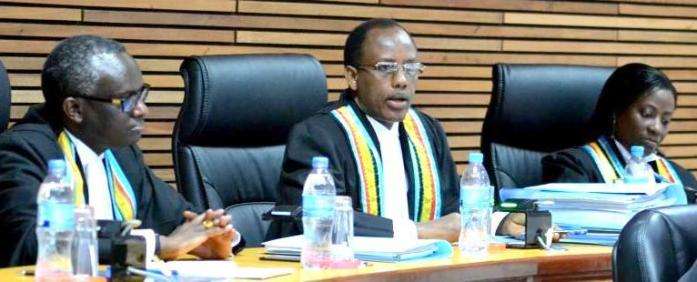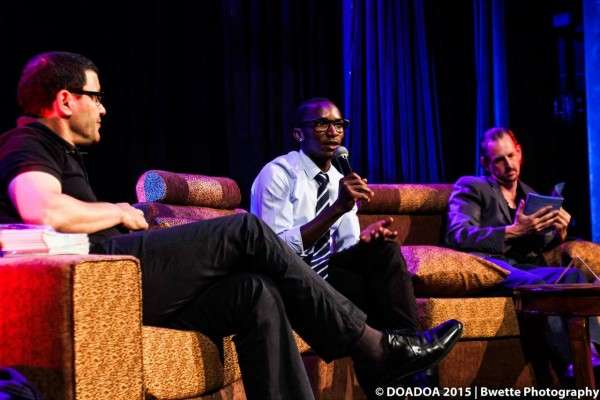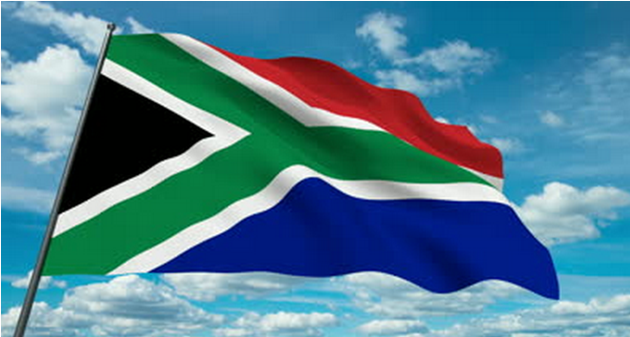By Jean Paul Nkurunziza and Alain Ndikumana |
Following on from the State of Internet Freedoms in Burundi 2014 report published last May, this brief presents an update on Information and Communication Technology (ICT) access, the legal and regulatory policies and practices that affect internet freedoms in the Burundi. It covers the period from March 2014 to May 2015. Notably, Burundi has been rocked by a coup attempt and intermittent public protests against President Pierre Nkurunziza’s plan to contest for a third term in office in apparent defiance of a two terms limit set by the constitution.
During the upheavals in April and May, the country’s communications regulator reportedly directed internet service providers to cut access to social media, and several media houses were pillaged. Meanwhile, the East African Court of Justice declared sections of the country’s media law undemocratic, but it upheld articles on the regulation of print and online media, which have been criticised by journalists and human rights defenders for negating freedom of expression.
Read the full State of Internet Freedoms in Burundi as of June 2015
OpenNet Africa Challenge Uncovers Gaps in Digital Safety Tools
By Ashnah Kalemera |
There are numerous tools which can secure online users’ communications, including through anonymising their identities and enabling them to circumvent online surveillance and censorship. In some cases, developers have gone on to localise such tools to suit various contexts. However, the tools’ relevance to certain populations and how best to improve them for a diverse range of users remains largely unknown.
During May 2015, the Collaboration on International ICT Policy for East and Southern Africa (CIPESA) in partnership with tech innovation hub OutBox challenged members of the Ugandan tech community to test five digital safety and security tools in order to gain an understanding, in a local context, of the tools’ strengths, weaknesses and opportunities for localisation. The challenge was in the context of CIPESA’s OpenNet Africa initiative which monitors and promotes internet freedom in east and southern Africa.
The tested tools were Cyrptocat, Mailvelope, Martus, TextSecure and Redphone. The scope of testing included how the tools enabled anonymisation, circumvention, and privacy of communications. The tests had to take into consideration different user communities, including women, bloggers, journalists, human rights defenders, and sexual minorities, and the nature of threats to internet freedom in the East African region.

These threats are often linked to the fight against terrorism, combating online hate speech, suppressing the views of opposition parties (mainly around election periods), and in crackdowns against particular groups, such as Lesbian, Gay, Bisexual, and Transgender (LGBT) community, critical media and human rights activists. The threats often come in the form of surveillance, blocking of websites and social media sites, and interception of communications.
Three teams participated in the challenge through trial exercises, user consultations and stakeholder interviews. In considering which tools were better suited to promote internet freedoms of the region’s citizens, the teams that conducted the tests also bore in mind the proliferation of technology, internet speeds and literacy levels in the region. Language, multiple device use and aesthetics such as the interface design including colours and icons, were also among the other features for testing.
The teams found a number of shortcomings on some tools, including the lack of protection from key loggers, poor or no consideration for low internet speed users and those with low ICT skills and literacy levels. Some tools were found to have limited cross platform/device operability, while others were not accessible to visually impaired persons.
Select test findings
| Tool | Safety and Security Features | Key test finding limitation |
| Martus | Allows for secure collection, transmission and storage of data. It is popularly used by human rights defenders. |
|
| Cryptocat | This app enables encrypted chat via a browser and mobile phone. |
|
| Mailvelope | This is a browser extension that enables the exchange of encrypted emails |
|
| Redphone | An Android based mobile app that allows for encrypted voice calls over a Wi-Fi or data connection using a normal phone number. |
|
| TextSecure | Secure messaging app |
|
“Pious, a 25-year old IT student at Makerere said that he is now using Redphone with his girlfriend whenever they feel like phone sex in order to avoid the spying software announced by Fr. Simon Lukodo, Minister of Ethics and Integrity,” Tean Tech4Dev
The teams made recommendations for improvement and localisation, including translation of the tools into local languages, compatibility provisions across social media platforms, and feature phone support.
The teams also proposed numerous cases in which the tools can be used by marginalised and vulnerable user groups in East Africa. They cited youth mobilisation, gender-based violence and other human rights violations reporting, monitoring and victims support, facilitation of opposition groups’ activities, and protection from corporate espionage.
However, the teams also highlighted the potential of the tools promoting hate speech and radicalism in East Africa’s fragile socio-political environment through safeguarding the communications and activities of offenders.
“One of the primary uses of the Internet by terrorists is for the dissemination of propaganda. Through encrypted communications, terrorists can easily spread their propaganda and also plan their activities,” noted Team African Value. The team added that promotion of divisiveness and encouraging violent acts on ethnic grounds has become common on East African online platforms.
The teams also noted the need for increased awareness raising and capacity building among users to promote an understanding of cyber threats and online safety. Among the possible ways to achieve this was through working with academia to develop cyber security curriculums for education institutions.
The findings of the teams were showcased at a pitching event held on June 2, 2015 where a panel of judges determined the team with the best reports and localisation recommendations. The judges were Wilson Abigaba (Internet Society – Uganda Chapter), Richard Lusimbo (Sexual Minorities Uganda), Baldwin Okello (Uganda Telecom) and Neil Blazevic and Mark Kiggundu – both from East and Horn of Africa Human Rights Defenders Project.
The winning team was Tech4Dev, which was followed by Ghost In The Wires then African Values. See more on the event on Storify
East African Court Declares Sections of Burundi’s Media Law ‘Undemocratic’
By Wairagala Wakabi |
The East African Court of Justice (EACJ) has ruled that sections of Burundi’s Press Law of 2013 violate democratic principles and should be repealed. However, the court upheld several other clauses, including those related to regulation of print and online media.
Delivered on May 15 at the Arusha, Tanzania-based court, the ruling found two articles (19 & and 20) in contravention of the principles on democracy and accountability in the constitution of the East African Community (EAC), the regional inter-governmental organisation that groups Burundi, Kenya, Rwanda, Tanzania, and Uganda.
Judges said restrictions in Article 19, prohibited the “dissemination of information on the stability of the currency, offensive articles or reports regarding public or private persons, information that may harm the credit of the state and national economy, diplomacy, scientific research and reports of Commissions of Inquiry by the state” and could not stand the test of reasonability, rationality or proportionality.
On Article 20, which requires journalists to disclose confidential sources of information, the judges ruled that other laws could be enacted to deal with state secrets rather than forcing journalists to disclose their confidential sources.
The ruling comes nearly two years after the Burundi Journalists Union (BJU) lodged a petition before the regional court asking judges to order an immediate repeal of 42 articles in the law, which they said were inimical to democracy and freedom of expression.
In the July 2013 petition, the journalists’ union contested Article 29 that makes it a requirement for online publications and news agencies to disclose certain information to the National Communication Council (CNC) or the public prosecutor’s office. This information includes the first edition of the publication, the name, nationality and full address and criminal record of the Director of the publication, the full address of the web host, the languages of publication and the constitution of the web publisher.
However, in their ruling, the judges did not refer to this article and to others which the petitioners said provided “an unduly onerous and restrictive framework for the regulation of the print and web media.”
Other articles which the journalists wanted invalidated relate to the requirement of compulsory accreditation for all journalists, prior censorship regime for films to be directed in Burundi, the right of reply and correction “that is vaguely worded and unduly impedes the media’s right to freedom of expression”, and the “hefty” fines and penalties specified by the law.
The judges stated that under the articles of the EAC Treaty, “the principles of democracy must of necessity include adherence to press freedom.” They noted that a free press goes hand in hand with the principles of accountability and transparency, two fundamental principles reiterated in the Treaty which partner states have to adhere to.
Moreover, the judges noted that while the EACJ could not superintend the organs of partner states in the ways they enact their laws, “it is an obligation on their part not to enact or sustain laws that completely negate the purpose for which the Treaty was itself enacted.”
The judges further stated that they would direct the Republic of Burundi, “within its internal legal processes, to implement the EACJ judgment.”
In pleadings before the court, the Burundi government argued that since it was preparing for elections in 2015, invalidating the law would jeorpadise its delicate stability.
Burundi is reeling under the effects of political unrest that has seen media freedom take a big hit. President Pierre Nkurunziza’s resolve to contest for a third term in office in defiance of a two terms limit set by the constitution sparked mass protests in the country, during which government banned live reporting from the scenes of the demonstrations.
Broadcasts from three popular radio stations – Radio Isanganiro, Radio Publique Africaine (RPA), and Radio Bonesha – were also suspended beyond the capital Bujumbura.
Last week, amidst a coup attempt, the privately owned RPA was hit by a rocket and reportedly set ablaze by police and pro- ruling party youth. Rema radio and television, said to be allied to the ruling party, was torched by protesters. State-owned radio and TV were forced on and off air and their headquarters was the scene of fierce fighting, as forces jostled for the control of Bujumbura and the channels of mass communication.
There were reports that Whatsapp, twitter and Facebook were cut off to limit their use by protest organisers following orders in writing by the country’s telecommunications regulator, L’Agence de Régulation et de Contrôle des Télécommunications (ARCT), to block certain sites.
Read more about the policies and practices defining the country’s internet freedom in The State of Internet Freedoms in Burundi 2014 report.
Image Credit: East African Court of Justice, Arusha
Building Local Online Content Through The Creative Industries in Africa
By Juliet Nanfuka |
The creative industry provides a blend of literature, visual, audio, physical and verbal means through which to communicate complex social issues – increasingly complemented by online tools. In particular, the music industry in Africa is driving the digitalisation of content as it aligns itself with global trends.
There are locally developed apps to cater specifically to African content producers and consumers. Websites such as Fezah (Uganda),Mvelani (Malawi), Mkito (Tanzania) – which also offers a short message service option to source music through feature phones – and Spinlet (Finland, Nigeria, South Africa) are providing unique African music platforms through which content can be easily disseminated. These platforms are creating avenues through which African artists can promote, distribute and monetise their content while also reaching a global audience.
However, the economic potential that the music industry has – and by extension, other creative industries – is often overlooked. According to PriceWaterHouse Coopers, Kenya’s music market generated revenues of US$19.8 million in 2012, up from US$16.5 million in 2008, a figure projected to reach US$20.7 million in 2015. The report also indicated that spending on digital music will overtake physical spending in 2015.
In Nigeria, the music market generated revenues of US$51.3 million in 2012 with forecasts indicating further growth to reach US$53.8 million in 2017. The report further estimates spend on digital music content in Nigeria will rise to an estimated 66.6% of digital’s share of total spending on recorded music by 2017, up from 49.0% in 2012.
But a 2015 British Council report on the music sector in East Africa found that “the impact of digitisation on both music-making and distribution is not fully understood nor is it encompassed by statutory law, with most regulations having been passed before the digital revolution.” This impact purportedly spans beyond music, influencing other areas of the creative industry such as photography, visual arts including painting, graphic and digital design, sculpturepaint, dance and even literature.
Accordingly, last May, East African artists and performers convened in Jinja, Uganda for Doadoa, dubbed an “East African Performing Arts Market”, for a three-day event aimed at providing a platform for East African artists to engage with each other as well as to define the path that the creative industry takes in making itself more financially sustainable. Doadoa echoes the Festival au Désert in Mali and South Africa’s Moshito festivals which also connect artists from across the continent.
Discussions at DoaDoa explored issues of content creation, music production and commercialisation in a sector that is challenged by limited infrastructure, skills, geographic divides, piracy, and fractured protection of intellectual property. As more East Africans have gone online, so has the amount of content generated for both general and commercial consumption yet it accounts for just a small fraction of the global content available online.
Despite the increased amount of online content produced, there remain few laws applicable to the creative industry and for those in existence, there is limited enforcement. An ArtWatch Africa 2013 report on Monitoring Freedom of Creative Expression noted the limited priority and commitment that African national constitutions have for guaranteeing freedom of creative expression or cultural rights. As such, there have been reports of abuse and infringements on artists’ rights when their work challenged political, religious and social norms.
For instance, in September 2014, South African artist Brett Baily struck a nerve when his piece, Exhibit B, on exhibition in London challenged racism. Fellow South African activist and photographer Zanele Muholi has also received criticism for her work depicting the brutality that black lesbians face in the hands of their communities. In 2012, a Ugandan play titled “State of the Nation” was cancelled by the Media Council because of its subject matter of corruption and poor governance, while in 2013, Daniel Cecil, a British theatre producer, was deported from Uganda following work on a play that had a gay character.
However, despite the emergence of bills applicable to the creative industry such as Kenya’s National Design Bill 2015 or the East African Community Creative and Cultural Industries Bill, 2014, there remains little explicit mention in the bill of online media as a tool increasingly used in the creation and dissemination of artistic and cultural content. Similarly, there are no legal mechanisms to protect and promote a regional online creative economy. Kenya however has released their National Design Bill which established the Institute of Designers Kenya. It however limits creative expression to members of the (IDK) thus posing a challenge to creatives without the means to pay the registration fees for membership with the institute. It also makes limited mention of online design content.
As creative content has become pivotal in the digital economy, the need to protect it as a form of expression is key to its sustainability both online and offline. Creating symbiotic relationships between the artistic community across the continent, online advocacy groups and human rights defenders in pursuit of more locally driven and cohesive advocacy on social issues such as freedom of expression, privacy, data protection and surveillance is key.
Image: Bwette Photography
Online Censorship in South Africa
South Africa is among the top five African countries with the highest mobile broadband reach, preceded by Ghana, Zimbabwe, Namibia and Egypt. As of June 2014, internet users had increased to 52% of the population, majority of them using mobile devices to access the internet.
Although the country has been ranked free in internet freedom rankings and held highly in respect to promoting equal rights, recent developments in the offline and online world say otherwise.
In March 2015, a consumer activist who runs the CAMcheck blog that reports on misleading claims made by consumer goods providers, was forced to move his website offshore following a take-down request made by sports supplement company USN for content described as “unsubstantiated and defamatory”.
According to Section 78 of the Electronic Communications and Transactions Act (ECTA) 2002, ISPs are not obliged to monitor the data they transmit or to actively seek facts or circumstances indicating an unlawful activity. Service providers are, however, liable for failure to comply when issued with takedown requests from users as provided under Section 77 of the Act.
It is thus no surprise that Hetzner, the CAMcheck blog web hosting provider, also a member of the South Africa Internet Service Providers Association (ISPA), complied with the take down request.
Also in March 2015, the Film and Publication Board (FPB) gazetted a Draft Online Regulation Policy, 2014, which contains clauses that have the potential of blocking online content – including films, games and certain publications – prior to publication.
The regulations require that anyone wishing to publish or distribute such content has to first acquire a digital publisher’s online distribution agreement with the FPB, after paying a subscription fee. Once paid, the publisher would have to submit the content to the FPB for classification prior to publishing.
The FPB has the mandate to regulate the creation, production, possession and distribution of films, games and certain publications by way of classification, to protect children from exposure to disturbing and harmful material and from premature exposure to adult material and to criminalise child pornography and the use and exposure of children to pornography.
The Draft Online Regulation Policy states that, the policy, “read with the Online Regulation Strategy and the ECT Act Amendment Bill, will also ensure that classification focuses on media content, rather than on platforms or delivery technologies.”
However, civil society organisations have criticised the draft policy, stating that they are “effectively a specific form of pre-publication censorship, which is not acceptable.” They also add that the time spent on the pre-classification of content would undermine one of the most valuable traits of the internet – its immediacy.
Further concerns about the new regulations include the exclusion of content by parties unable to pay the fees required and thus a potential limitation on the diversity of online content.
But online content censorship is not new in South Africa. In 2012, “The Spear”, a controversial painting by Brett Murray which depicted President Jacob Zuma with his genitals exposed, was published on the City Press website – a daily newspaper. President Zuma and the African National Congress Party obtained an order for the removal of the image from the website of City Press on the grounds that it was unfit for viewers under the age of 16, according to classifications by the FPB. The Goodman Gallery (where the painting was displayed) approached the FPB Appeal Tribunal which found that the ruling in favour of the injunction was incorrect. The City Press nonetheless removed the image from its website.
Meanwhile in the first quarter of 2013, the South African Counter Intelligence Agency made a content removal request to Google for a blog post that was ‘allegedly infringing copyright by criticizing a media release that the agency had issued.”
Although this request was denied, past incidents together with recent developments in the country bring to the fore the crucial online freedom issues of intermediary liability and freedom of expression.
In its 2014 State of Internet Freedoms in South Africa report, the Collaboration on International ICT Policy for East and Southern Africa (CIPESA) highlights these gaps. It states that the absence of detailed provisions in the guidelines for recognition of industry representative bodies of ISPs “creates a situation where ISPs are not free to establish any ’notice’ or ‘notice and put-back’ mechanism, which would allow the user to respond to the allegations of infringement or, respectively, to provisionally restore the allegedly infringing content.”
The ECTA Amendment Bill of 2012 attempts to address some of the existing gaps by introducing Section 77A, which provides consumers with the right to be heard by ISPs before a takedown notice is enforced. However, this section still has limited provision for a user to respond to the allegations of infringement or to provisionally restore the allegedly infringing content. ISPs are merely required to respond to a “first take-down notice” within 10 business days (lesser days if the complainant can demonstrate irreparable or substantial harm).
The 2014 report calls for a review of South African legislation that is applicable to online freedom, specifically pointing out the need for immediate revision of the Films and Publications Act.
The report also recommends increased dialogue between civil society and policy makers to progressive law reforms, including a review of legislation that have actual or potential chilling effects on internet freedom.
Read the full State of Internet Freedoms in South Africa Report here.





